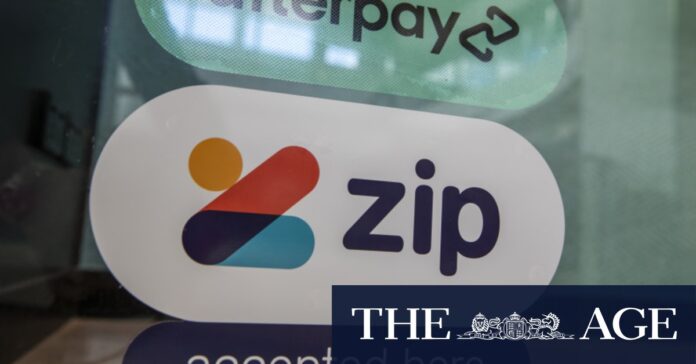[ad_1]
Buy now, pay later companies have committed to improving access to hardship support schemes and proactively supporting vulnerable customers who are in a debt spiral and struggling to repay their loans.
The Australian Finance Industry Association, which represents buy now, pay later (BNPL) operators, has released interim guidelines to protect customers ahead of the federal government’s intended regulation of the popular short-term loans.

The Australian Finance Industry Association has released interim guidelines to protect customers ahead of the federal government’s intended regulation of the popular short-term loans.Credit: Louie Douvis
The changes have been triggered by an independent review that said the new code should encourage BNPL firms, such as AfterPay and ZipPay, to be more proactive in dealing with financial hardship, and it should “introduce specific and clear commitments to assist people experiencing vulnerabilities”.
The interim guideline requires operators to promote the use of new digital tools to identify suspicious activity; increase their communication with customers; improve training programs for staff to identify and support vulnerable customers; and better promote their complaints processes.
“During the Christmas period, the pressure on finances can increase, adding to the cost of living pressures impacting many Australians,” Australian Finance Industry Association chief Diane Tate said.
Loading
“More than 6.3 million Australians now use BNPL products because it helps them budget, they don’t get charged interest and it is an easy-to-use digital technology. In an environment where cost of living pressures are increasing on many consumers, it is important they have access to the right product that meets their needs.”
Earlier this year, the association released an independent review of the industry’s code of practice that made 51 recommendations, with several of those focused on BNPL firms’ dealings with vulnerable customers, after consumer groups said the products were commonly used by people who could be disadvantaged, including those on low incomes.
The review, by consultancy Promontory, however, did not deal with the highly contested issue of whether customers should be subject to thorough affordability checks.
[ad_2]
Source link


